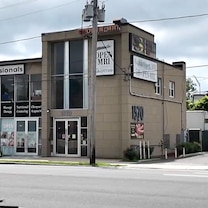Experimental Drug Leads to Life Changing News for Cancer Patients
After a report on ABC's 'World News,' hundreds sought new cancer treatment.
Nov. 10, 2009— -- Bill Schuette had tried chemotherapy -- seven different kinds -- but his lung cancer continued to grow. His doctor told him that they had exhausted every option -- there was no other way to treat his cancer.
"He basically looked at me and said, 'Bill, I have nothing else. There's nothing I know of that's going to work,'" said Schuette. "I told him, 'You want me to go home and die?' And I'll never forget his look. He looked at me and he didn't say anything. He just looked at me, and he welled up a bit."
One evening a few months later, Schuette was at home outside Dayton, Ohio, watching television. He saw a report on ABC's "World News With Charles Gibson" about a new way of genetically screening lung tumors to identify new targets of opportunity.
The broadcast report also showed how the screening technique had helped a woman with similar end-stage lung cancer who, like Schuette, was also a nonsmoker. The technique worked by finding a rare mutation in her tumor that was the exact target of a new drug in clinical trials.
It was June 2, and Schuette could not believe his eyes.
"It blew me away," the 61-year-old Schuette said. "There was never any hope before. And now there was hope."
Within minutes, Schuette was on his computer, looking to become a patient at the Massachusetts General Cancer Center, where the extensive screening was being done.
A few weeks later, doctors there were analyzing samples of his tumor. They discovered it had that very same genetic mutation, called ALK translocation/nonsmall cell lung cancer. So Schuette was started on the same new, experimental drug developed by Pfizer; a drug so new it only goes by the name PF-02341066.
Within days of starting the medication, Schuette knew something was happening.
"I started feeling better right away. The pain in my chest, I couldn't believe how quickly it went away."
Last month, just seven weeks later, Schuette and his wife drove once again from Versailles, Ohio, to the Massachusetts General Cancer Center in Boston to undergo a CT scan. It showed the tumor was now shrinking, dramatically.
"I looked at my wife, and I looked at the doctors, and they were high-fiving each other. And I thought, 'Man, this is for real'," he said.
It turns out, Schuette is not alone.



